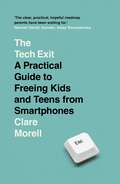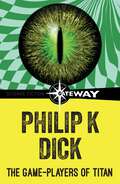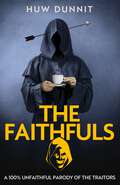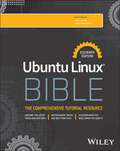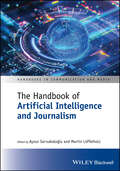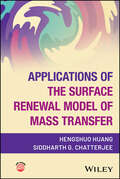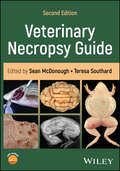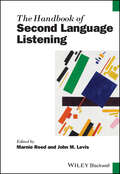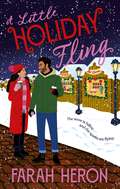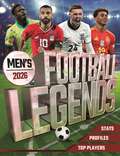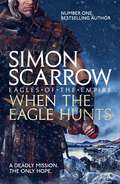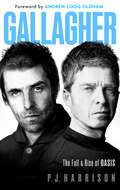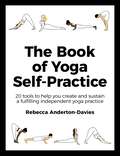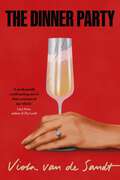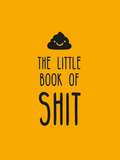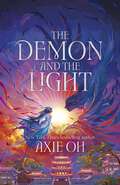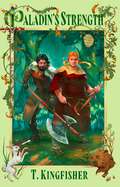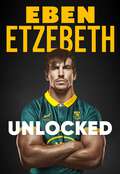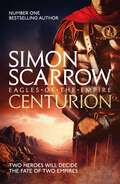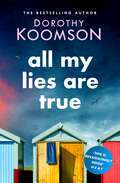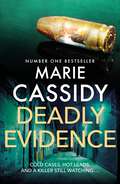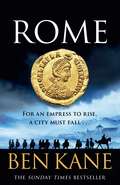- Table View
- List View
The Tech Exit: A Practical Guide to Freeing Kids and Teens from Smartphones
by Clare MorellIt's no secret that addictive digital technologies like smartphones and social media apps are harming a generation of kids socially, mentally, and even physically. But a workable solution seems elusive. After all, don't kids need phones, and won't they be vulnerable or socially isolated without tech?Clare Morell, fellow at the Ethics and Public Policy Center and director of its Technology and Human Flourishing Project, argues that the answer is 'no'. She exposes the lies parents have been sold about managing the dangers of tech through parental controls and screen-time limits, and demonstrates that another way is possible - even if your children are already using smartphones or social media.The Tech Exit maps a doable pathway to freedom from digital technology for families, local communities, and society. Drawing on dozens of interviews with experts and with families who have gone tech-free, as well as Morell's own work as a policy expert, The Tech Exit shows how digital technology is anything but necessary for children to live happy, healthy, and socially full lives.The Tech Exit is essential reading for any parent who has felt stuck between an awareness of the dangers of digital technology for kids and the feeling that tech is necessary and inevitable. Clare Morell's message is simple and compelling: You and your family can be free. The life you want for your children is within reach.
The Game-Players of Titan
by Philip K DickThe creatures from Saturn's moon Titan could appear human or inhuman at will. And the elaborate contest they set up with the remnants of Earth's humanity was just as treacherous. Pete Garden was one of the finest game-players this side of Titan - but was he good enough? For although the war had been fought to a stalemate, the unending series of gambles could upset the truce - and end the world.
You Do You: Quotes to Uplift, Empower and Inspire
by Summersdale PublishersNo one is better at being you than you... and there's only one you in the universeHere's to the often-imitated, never bettered, wonderfully unique you! These inspirational quotes and uplifting mantras will remind you that you don't need to follow the crowd - follow your heart and keep on being your amazing, individual self.Filled with memorable quotes from a variety of bright and brilliant figures, this book will help you change your mindset and set your life on a new pathway towards self-love, self-confidence and high self-esteem. You can use the wise words within to:- Redefine what it is you want out of life- Recognize your integral worth- Reimagine your place in the world- Remind yourself that you are specialYou deserve to love yourself for who you are! So, what are you waiting for? Spend your days being happy, confident and true to yourself with this exciting and empowering book.
The Faithfuls: A 100% Unfaithful Parody of The Traitors
by Huw DunnitINNOCENT BUT ANNOYING STRANGERS ARE BEING MURDERED ONE BY ONEWelcome to a medieval castle in the wilds of Scotland. Arriving here are contestants in the world's most popular new TV Reality show: two dozen ordinary (and painstakingly diverse) individuals from every corner of the British Isles. These seemingly random individuals random represent a cross-section of society (although shallow nobheads seem to be a bit over-represented). The castle is vast and labyrinthine, as are the paths through this treacherous landscape ...The Faithfuls are ready to make friends, stab each other's backs, and possibly win huge sums of money and even become famous into the bargain. Imagine a hen party Murder Mystery Weekend with Harry Potter cosplay. Pitted against each other, these law-abiding folk find their values challenged. Relationships are tainted by distrust and fear. Betrayal, hate and bad faith take the upper hand as the rules that hold society together rapidly start to crumble. And this is when they are denied access to social media. Each night one of the group is 'murdered' by the dark, secretive forces within - the Traitors. Their actions are directed by the sinister Manny Clawdwinkle whose remarkable wardrobe (one might suppose) is large enough to fill every room in the castle. Will the murderous Traitor be unearthed before the Faithfuls finally rip each other to shreds? And do that many people in society really have so much cosmetic surgery? Phew!
Ubuntu Linux Bible
by Christopher Negus David ClintonThe latest version of the gold standard in Ubuntu Linux resources In the freshly updated eleventh edition of Ubuntu Linux Bible, a team of veteran Linux educators delivers a comprehensive discussion of the Ubuntu Linux operating system. Perfect for absolute beginners and experienced users and server admins alike, this book explains the ins-and-outs of installing, configuring, maintaining, optimizing, and using Ubuntu systems. This edition builds on the user-centric approach used by previous editions, showing you exactly how to perform common and essential tasks, like interfacing with popular IoT devices. The book covers: Becoming a Linux power user: Using the Shell, navigating the filesystem, and more Installing and configuring an Ubuntu Linux desktop or server Linux server administration, including managing remote access and common desktop network configuration settings Linux security techniques, including cryptography, PAM, and AppArmor The Ubuntu Linux Bible is intuitively organized, allowing you to skip quickly to the section you need in the moment. It also covers the latest version of the popular Linux distribution – v24.04 at the time of writing – as well as the previous version. You'll also find: Complete coverage of the enterprise and network functionality offered by Ubuntu, like web servers, networked file sharing, and DHCP and DNS management Up-to-date explanations of desktop Ubuntu configuration, including user management, system backups, printer and device management, and wireless features End-of-chapter exercises and questions, complete with answers, to help you develop your hands-on Ubuntu skillset Perfect for Ubuntu Linux beginners and novice users, Ubuntu Linux Bible is also an essential resource for anyone transitioning from Windows desktops and servers looking for concise, accurate, and expert guidance in the Ubuntu OS.
The Handbook of Artificial Intelligence and Journalism (Handbooks in Communication and Media)
by Martin Löffelholz Aynur SarısakaloğluPresents a comprehensive global overview of AI-driven journalism and its transformative impact on media practices As artificial intelligence (AI) continues to reshape the media landscape, The Handbook of Artificial Intelligence and Journalism provides the first comprehensive academic exploration of the intersection between AI technologies and journalism. Edited by Aynur Sarisakaloglu and Martin Löffelholz, this foundational volume brings together 37 leading scholars from six continents to examine how AI is redefining the structures, practices, and epistemologies of journalism. Organized around key thematic areas, the Handbook investigates the driving forces propelling the algorithmic transformation and unveils emerging trends in journalistic practice and journalism research, moving beyond Western-centric perspectives to incorporate diverse global experiences and knowledge production. Twenty-eight original chapters address systemic shifts such as evolving structures of media organizations, changing roles of actors, transformations in news production routines, and shifting patterns of news consumption. By integrating theoretical, empirical, and practical perspectives, the Handbook sets the stage for a new research agenda for understanding AI-driven journalism on a global scale. Containing rigorous interdisciplinary scholarship and broad geographical coverage, The Handbook of Artificial Intelligence and Journalism: Integrates theoretical foundations, empirical studies, and practical applications in a cohesive structure Offers insights into journalism practices across a wide range of geographical contexts and engages with approaches that transcends Western-dominated paradigms, incorporating perspectives from the Global South Employs interdisciplinary frameworks to enhance the understanding of AI-driven journalism Examines the sociotechnical dynamics of AI, including its potential benefits and challenges for journalism Presents forward-looking reflections on the future of journalism research in the AI era The Handbook of Artificial Intelligence and Journalism is ideal for undergraduate, graduate, and doctoral students in journalism, communication, and media studies programs. It also serves as a vital reference for researchers, educators, media professionals, and policy advisors engaged in digital journalism, journalism research, media innovation, and public communication.
Applications of the Surface Renewal Model of Mass Transfer
by Hengshuo Huang Siddharth G. ChatterjeeIntroduction to the surface renewal model of mass transfer for the analysis and design of gas-liquid contacting equipment and membrane filters Applications of the Surface Renewal Model of Mass Transfer provides a rigorous application of the surface renewal theory of mass transfer to describe physical and chemical gas absorption and membrane filtration. This book demonstrates that the surface renewal model can predict the experimentally measured liquid-side physical mass-transfer coefficient in gas absorption with a fair degree of accuracy, shows that the surface renewal model can correlate permeate flux and transmembrane pressure drop data in constant pressure and constant flux microfiltration, and contains numerous examples of the application of the model to real-world situations. This book includes information on: Applications of the surface renewal model in fields like chemical engineering and oceanography The complex nature of the surface renewal model as a better description of the turbulent hydrodynamics that prevail at the gas-liquid interface compared to the film model Measurements of the liquid-side physical mass-transfer coefficient in gas absorption studies and surface-age distributions in wind-wave tanks Flow instabilities induced by wall roughness or spacers or by their deliberate introduction into the main flow in membrane filtration Analysis and design of gas-liquid contactors (stirred tanks and packed towers) and membrane filters using a mass-transfer approach Applications of the Surface Renewal Model of Mass Transfer is an excellent, first-of-its-kind reference for researchers in academia and industry, along with advanced students in chemical engineering, environmental engineering, bioprocess/biological engineering, paper engineering, and related programs of study.
Veterinary Necropsy Guide
by Teresa Southard Sean McDonoughAn updated and expanded guide to performing necropsies on veterinary patients, now covering farm animals and exotics in addition to dogs, cats, and small mammals Veterinary Necropsy Guide, Second Edition delivers practical guidance on how to perform a postmortem examination in animals. The book includes expanded and updated species coverage, now including cattle, horses, sheep, goats, alpacas, llamas, pigs, and exotics, in addition to dogs, cats, and small mammals. It offers detailed descriptions of the necropsy procedure in small animals, comparative anatomy, modified procedures appropriate for various species, and special postmortem species. Each chapter covers an organ system and explains dissection, examination, and tissue collection. The authors also include guidelines for sample collection for ancillary testing. Veterinary Necropsy Guide provides: A thorough introduction to veterinary necropsy, including when, how, and why to perform a postmortem examinationComprehensive explorations of canine, feline, small mammal, farm animal, and exotic animal necropsiesPractical discussions of comparative anatomy, procedural modifications, and special necropsy techniquesComplete treatments of the necropsy procedure, organ systems, and additional testing Veterinary Necropsy Guide is an essential reference for veterinary students, veterinary anatomic pathology residents, and veterinary pathologists, laboratory veterinarians, shelter veterinarians, and veterinary practitioners who perform necropsies.
The Handbook of Second Language Listening (Blackwell Handbooks in Linguistics)
by John M. Levis Marnie ReedEssential insights and strategies for teaching and researching second language listening comprehension skills The Handbook of Second Language Listening provides comprehensive and authoritative coverage of the processes, challenges, and pedagogy of second language (L2) listening. Designed for researchers, teacher educators, and classroom practitioners, this volume presents a systematic examination of how L2 learners perceive and interpret spoken language across diverse contexts and discusses how instruction can better support the listening process. The Handbook addresses a broad range of topics essential to understanding and teaching L2 listening, including perceptual foundations, the influence of prosody, speech perception, listening assessment, and metacognitive strategy use. Chapters by leading scholars and emerging voices in applied linguistics bridge theory and practice by offering evidence-based insights into listener variability, instructional design, and the interface between listening and pronunciation. This book brings attention to topic areas often overlooked, such as decolonial theory in listening research and the impact of orthography on perception. Equipping educators and scholars with the tools needed to understand L2 listening as both a cognitive process and a teachable skill, the Handbook of Second Language Listening: Integrates current findings from phonetics, psycholinguistics, and applied linguistics Connects theoretical models of perception and processing with classroom-based applications Addresses foundational and emerging topics, from phonetic decoding comprehension of spoken academic discourse Includes dedicated sections on technology-enhanced assessment and instruction Covers key pedagogical challenges such as listening in noise, processing of prosody, and strategy instruction Provides practical frameworks for evaluating and designing L2 listening tasks The Handbook of Second Language Listening is ideal for graduate-level courses in TESOL and Applied Linguistics, including Second Language Acquisition, Listening Pedagogy, and Language Assessment, which are core to MA TESOL and Linguistics programs. It is also a critical reference for researchers, teacher educators, curriculum designers, and language assessment specialists.
A Little Holiday Fling
by Farah HeronThe joy of Christmas and the thrill of falling in love collide in this gorgeous novel from the highly praised author of Accidentally Engaged.There are two things that Ruby Dhanji loves with her whole entire heart: Christmas and anything to do with the UK. For Ruby the holidays means joy and warm memories with her late mother. And now she's on the verge of realizing the dream she and her mom always had: moving to England and opening a cozy inn. The only problem, Ruby needs some hotel experience first. Rashid just doesn't get all the holiday hype. But when he meets a woman dragging home a Christmas tree alone he has to offer to help-even if he soon finds Ruby adores all the things he dislikes. When Ruby discovers that his family owns a luxury boutique hotel chain she offers him a proposition: she'll help him give his young nieces an amazing Christmas if he'll facilitate an introduction to his family. As Ruby and Rashid's friendship turns to something more, she's afraid she's falling for someone weeks before she moves across the Atlantic and she'll soon have to decide which dream she wants to chase.***Praise for Farah Heron 'Heron [writes] crackling banter' Entertainment Weekly 'Farah Heron writes with the keen eye of a satirist and the big heart of a romantic' Jenny Holiday 'Heron writes a compelling story . . . [that] will appeal to readers looking for complex family dramas and sumptuous descriptions of food and cooking' Kirkus 'Heron's sensitive insights infuse this romance with both immense charm and emotional depth' Booklist
Men's Football Legends 2026
by David BallheimerWho are currently the best players in world football? Is Mo Salah still the most prolific in front of goal or is Ousmane Dembele at PSG who's claiming the top spot? Which midfielder has the most impact on a game - Real's Jude Bellingham with his attacking play, or Barcelona's Pedri with his vision and passing? Who's the one to beat in between the sticks - is Alisson Becker still the world's premier keeper or has AC Milan's Maignan taken the top spot in 2026? While every fan has an opinion, back yours up with the latest stats featured in Football Legends 2026 (Men's) and show them who's the best football pundit! Showcasing the top 100 stars in the modern game, Football Legends 2026 offers the latest facts and stats of players in every position who play - or spent most of their careers - in Europe's elite leagues. With a star profile on each page, the book is packed with incisive data and includes stunning heat maps that show the pitch movements of every player featured. Get your copy now and start comparing the goals, assists, saves, freekicks (and a host of other data) of the current icons in world football.
When the Eagle Hunts (Eagles of the Empire #3)
by Simon ScarrowIF YOU DON'T KNOW SIMON SCARROW, YOU DON'T KNOW ROME!WHEN THE EAGLE HUNTS is the compelling third novel in Simon Scarrow's bestselling Eagles of the Empire series. For fans of Bernard Cornwell and Conn Iggulden. 'Scarrow's [novels] rank with the best' IndependentBritannia, AD 44. Cato, a thoughtful junior officer in the Roman army, and his commanding centurion, Macro, are simply pawns in Rome's lust to conquer Britain. During the freezing winter, the two men and their legion fight the native savages in hand-to-hand battles that haunt Cato for days after.But in a place full of enemies, the most vicious are the Druids of the Dark Moon; brutal, merciless men who have captured the wife and children of General Plautius himself.So Macro and Cato are given a mission: to travel deep into enemy territory and recover the hostages. If they fail, the fate of the Roman army may just hang in the balance...
Gallagher: The Fall and Rise of Oasis: the new 2025 biography of one of the world's biggest bands
by PJ Harrison'Brilliant...an absolute classic' Paul Ross'Harrison usefully tracks the brothers' post-Oasis careers and the toxifying feud between them' Ludovic Hunter Tilney, Financial Times'Harrison...goes further than most in getting to the core of who the Gallaghers are' Shaun Curran, TheiPaper***'WHEN AN ARTIST IS RELENTLESSLY AUTHENTIC, IT ALLOWS PEOPLE TO BELIEVE IN THEM AND TO BELIEVE IN THEIR WORK. AND THE GALLAGHERS BELIEVE IN EACH OTHER ONCE MORE.'Gallagher chronicles the fall and rise again of one of the world's biggest bands: Oasis. With a focus on Noel Gallagher and Liam Gallagher's individual journeys, this absorbing biography starts from the shattered remnants of Oasis in 2009, taking fans through 15 years of high and lows as the brothers become formidable solo artists, pinpointing the significant events that allowed them to bridge their fraternal rift and stage the greatest comeback of all time.Inside, PJ Harrison, a former label owner and artist manager (but above all Oasis fan) who spent time on the road and in the studio with the band, takes fans on a journey to the heart of Oasis and everything they stand for. Through meticulous research, exclusive interviews and inside access, Harrison strives to understand how two brothers rose from a council estate in Manchester to create the dominant musical force of their generation throughout the 1990s and 2000s and why they have such enduring legacies both together and apart.For three decades, the question of why Liam and Noel, two brothers with the world at their feet, simply couldn't get along has fascinated the world. Gallagher aims to explore that question and offer some answers. What drove them apart in 2009, and what led to their reunion in 2024?With a foreword from legendary Rolling Stones manager and producer, Andrew Loog Oldham, this unique telling of the Oasis story allows fans new and old to draw their own comparisons between two very different brothers; casting a new light on how they navigated fame, feuds and family to create music history before shocking the world with the reunion nobody thought could happen.
The Book of Yoga Self-Practice: 20 tools to help you create and sustain a fulfilling independent yoga practice
by Rebecca Anderton-DaviesToo busy? Too stressed? Can't focus? But would you love to discover the power of regular practice?This book is for you. The Book of Yoga Self-Practice is the ultimate guide for every aspiring yogi or dedicated student who wants to find the magic of an independent yoga self-practice - one that's simple, practical, captivating and attainable.No need to travel to a class, or struggle to find the exact type of teaching you need in any given moment. No need to follow a video or come up with the pre-planned sequence. No need to keep spending money on classes or subscriptions that never quite fit the bill. This step-by-step guide will show you how to overcome the challenges of starting, continuing and progressing in a yoga self-practice. It combines heartfelt writing with beautiful, clear design to provide 20 usable and unbelievably helpful tools that you can implement in your yoga practice today. Learn to practice anywhere at anytime, not just do poses. Fast, slow, short, long - your flow starts here. Start reaping the incredible rewards for your body and mind.
The Dinner Party: 'Tender, astonishing and unflinching' (Lucy Rose)
by Viola van de Sandt'A profoundly confronting novel which consumed me whole... tender, astonishing and unflinching'Lucy Rose, author of the Sunday Times bestseller The LambI remember everything that happened in those three minutes at the beginning of the evening, him and me in the kitchen. That, and what happened at the end: the knife, and what I did with it.Franca left the Netherlands behind to start her new life in England with Andrew. Andrew, whose parents lived in South Kensington but had a flat their son could 'borrow' nearby. Andrew, an old-fashioned British gentleman, who encourages her not to work but to instead focus on her writing. Andrew who suggests a dinner party with his colleagues to celebrate their big upcoming launch. A dinner party that Franca must plan and shop and cook and clean for. A dinner party during a heatwave, when the fridge breaks, alcohol replaces water and an unexpected guest joins their ranks. A dinner party where everything she once was and everything she now is comes together and she feels like she might implode.
The Little Book of Shit: A Celebration of Everybody's Favourite Expletive
by Summersdale PublishersIs "shit" the most versatile word in the English language? Quite possibly!From Philosophical Shit to Animal Shit, and Cultural Shit to Political Shit, this little book is the perfect gift for potty-humoured people.We've been saying "shit" (meaning "trash") since the sixteenth century - "The government is a load of shit!" - but the word itself has been around for thousands of years. Now it's a fan favourite four-letter word, used when you stub your toe, eat something good, spot something gross on the carpet, and all that other shit.With pages dedicated to some of the best uses of our favourite expletive, this book will make you laugh out loud, think about scientific shit, work, religion, and so on, and reflect on just how versatile a word "shit" really is.Some of the shits this book gives:- Doctors: Take two shits and call me in the morning- Waiters: You want fries with that shit?- Darwinism: Survival of the shittest- Jediism: May the shit be with youThere's enough shit for everyone!
The Demon and the Light (The Floating World)
by Axie OhFinal Fantasy meets Shadow and Bone in the incredible sequel to New York Times bestselling author Axie Oh's The Floating World, a romantic fantasy duology inspired by Korean Legend.The battle is over, but the war is just beginning . . .With the help of her friends and allies, Ren managed to topple the General's insurrection, but the Floating World and its territories are still under threat of attack from the rival Volmaran Empire. And worse, she was powerless to save Sunho from being overcome by the monstrous power in his blood. Now he's gone, transformed into a feral, deadly creature that doesn't even recognize her anymore, and her heart aches for the sweet boy she's grown to love.But the escalating war will not pause for her grief. Seen by some as a heavenly saviour and others merely a figurehead to be manipulated, Ren must use all her courage and cunning to survive the royal court's game long enough to find Sunho and bring him home before he loses himself to the Demon forever.
Last Rites: Never-before-told stories of a legendary life from the rock 'n' roll hellraiser
by Ozzy Osbourne'People say to me, if you could do it all again, knowing what youknow now, would you change anything? I'm like, f*ck no. If I'd been clean and sober, I wouldn't be Ozzy. If I'd done normal, sensible things, I wouldn't be Ozzy.'Husband. Father. Grandfather. F*cking Icon.1948 - 2025At the age of sixty-nine, Ozzy Osbourne was on a triumphant farewell tour, playing to sold-out arenas and rave reviews all around the world.Then: disaster.In a matter of just a few weeks, he went from being hospitalised with a finger infection to having to abandon his tour - and all public life - as he faced near-total paralysis from the neck down.Last Rites is the shocking, bitterly hilarious, never-before-told story of Ozzy's descent into hell. Along the way are reflections on an extraordinary life and career, including his marriage to wife Sharon, and what it took for him to return to the stage for the triumphant Back to the Beginning concert, streamed around the world, where Ozzy reunited with his Black Sabbath bandmates for the final time.Unflinching, brutally honest, but surprisingly life-affirming, Last Rites demonstrates once again why Ozzy transcended his status as 'The Godfather of Metal' and 'The Prince of Darkness' to become a modern-day folk hero and national treasure.
Paladin's Strength (The Saint of Steel #2)
by T. KingfisherFrom two-time Hugo Award-winning author T. Kingfisher comes Paladin's Strength, the perfect blend of cosy fantasy romance and classic fantasy adventure featuring an order of secretive nuns, a swashbuckling paladin and a strange hive of rabbits.He's a paladin of a dead god, tracking a supernatural killer across a continent. She's a nun from a secretive order, on the trail of the raiders who burned her convent and kidnapped her sisters. When their paths cross at the point of a sword, Istvhan and Clara will be pitched headlong into each other's quests, facing off against enemies both living and dead. But Clara has a secret that could jeopardize the growing trust between them, a secret that will lead them to the gladiatorial pits of a corrupt city, and beyond...Praise for T. Kingfisher:'T. Kingfisher solidifies her place as natural and inevitable heir to the greats of her genre, while remaining clearly and unquestionably a unique voice in fantasy' Seanan McGuire'Exciting, deeply wise, sad, brutal and compassionate all at once. And beautifully written, with a plot as cunning as fine embroidery' Catriona Ward'Creepy, funny, heartfelt, and full of fantastic characters I absolutely loved' Melissa Caruso, author of The Tethered Mage"Nettle & Bone brings Kingfisher's signature honesty and authenticity to a fairy tale setting: the result is refreshing, earnest but not naive, and deeply satisfying. I devoured it. This is one that's going to stay with me for a long time' Sarah Gailey, author of Magic for Liars'A delight throughout' Louisa Morgan, author of A Secret History of Witches'T. Kingfisher uses the bones of fairy tale to create something entirely her own, written in gloriously clear and transparent prose' Emily Tesh, author of Some Desperate Glory'Funny, frightening, and full of heart; I loved it' Alix E. Harrow, author of The Ten Thousand Doors of January'Charming and macabre, often both at the same time' A. K. Larkwood, author of The Unspoken Name'Absolutely delightful and full of charm and truth' Naomi Novik, on Thornhedge
Unlocked: The Must-Read Rugby Memoir of 2025
by Eben EtzebethEben Etzebeth is the most-capped player in South African Rugby history. A towering lock, whose intelligence, energy and aggression on the pitch is feared, respected and often imitated but never matched, he is the heart and soul of the Springbok team, a key part of their astonishingly successful run that encompasses two consecutive World Cups and a current two-year-stint at the top of the world rankings. In his first book, Eben will uncover the key driving factors in his extraordinary career, and how he keeps focussed, both on and off the pitch. From his humble beginnings in Goodwood, a Cape Town suburb where nothing came easy, to his place within the South African squad and their inner workings, get ready for a rugby story like no other.
Centurion (Eagles of the Empire #8)
by Simon ScarrowIF YOU DON'T KNOW SIMON SCARROW, YOU DON'T KNOW ROME!CENTURION, a no. 1 bestseller, is the unputdownable eighth novel in Simon Scarrow's Eagles of the Empire series. Perfect for fans of Bernard Cornwell and Conn Iggulden. 'A new book in Simon Scarrow's series about the Roman army is always a joy' The TimesAD 46. Roman army officers Cato and Macro have survived many dangerous missions together. They look out for one another. They're faithful to their Emperor. And from their men they demand bravery and ruthless efficiency.With the news that Rome's old enemy, Parthia, is poised to unleash its might against the border kingdom of Palmyra, Cato and Macro must embark on a desperate quest to protect the Empire. Outnumbered and deep in treacherous territory, they will have to endure a pitched battle that will test their courage and loyalty as never before...
All My Lies Are True: Lies, obsession, murder. Will the truth set anyone free?
by Dorothy Koomson'This is devastatingly good' HeatFrom the bestselling author of The Ice Cream Girls comes a gripping emotional thriller of love and obsession and the nature of coercive control. 'The author plays a blinder' says the Sun.Verity is telling lies...And that's why she's about to be arrested for attempted murder.Serena has been lying for years. . .And that may have driven her daughter, Verity, to do something unthinkable...Poppy's lies have come back to haunt her . . .So will her quest for the truth hurt everyone she loves?Everyone lies.But whose lies are going to end in tragedy?Praise for Dorothy Koomson:'If you only do one thing this weekend, read this book. . . utterly brilliant' Sun'Immediately gripping and relentlessly intense' Heat'An instantly involving pschological thriller' Telegraph'Koomson just gets better and better' Woman & Home
Deadly Evidence: A gripping, page-turning crime thriller from Ireland's former state pathologist
by Marie CassidyCOLD CASES. HOT LEADS. AND A KILLER STILL WATCHING . . .STATE PATHOLOGIST TERRY O'BRIEN IS ABOUT TO TAKE ON HER TOUGHEST ROLE YET.Tasked with leading the Open Case Review Unit, her usual post-mortem work has been extended to cold-case investigation into unsolved suspicious deaths.When a garda detective is murdered, his body mutilated and dumped on gangland ground, she is called in. As a large-scale investigation takes shape to hunt down the killers, Terry's post-mortem uncovers uncomfortable evidence.She soon finds herself up against the powers that be. But, as new evidence emerges from her cold-case work that impacts closer to home, this may be the least of her worries. Can the identity of her sister Jenny's killer, all those years ago, be revealed? And are some truths best left buried?
Rome: The action-packed, rip-roaring historical epic from the Sunday Times bestseller!
by Ben Kane'Highly recommend for anybody who loves Roman history, written by one of its true masters' PETER GIBBONS'Epic in scope and intimate in historical detail' MATTHEW HARFFY'Authentic, fast-paced and immersive' CHRISTIAN CAMERON'A masterpiece of late Rome' S.J.A. TURNEY'Historical settings and characters that leap into life straight off the page' SCOTT MARIANI'A vivid page-turning epic' ANNE O'BRIENFor an empress to rise, a city must fall...Rome, 410 ADHalf-sister to Emperor Honorius, unmarried and powerless, twenty-year-old Galla Placidia watches from the shadows as imperial policies are made and unmade. Her plans to gain power and influence are halted when the city is besieged and captured by a vast army led by Alaric the Visigoth. Taken hostage, travelling out of Italy, Galla Placidia falls in love and marries a barbarian king. At a time when Rome's power is fast dwindling, its authority diminishing year upon year, she embarks on a dangerous and remarkable journey towards the imperial throne.But what price must a woman pay for power?This is the compelling story of a little-known, remarkable woman whose burning ambition saw her, against all odds, become empress of Rome.What your favourite authors have to say about Ben Kane:'A rip-roaring epic' PAUL FINCH'A truly vibrant and gripping read' HELENA GUMLEY-MASON'Historical fiction has never been more visceral' JAMES ROLLINS'A tour de force on an epic scale' DOUGLAS JACKSONReaders are loving Ben Kane:'Powerful evocation of our history' ⭐⭐⭐⭐⭐'An engaging and exciting read' ⭐⭐⭐⭐⭐'Gripped me from start to finish' ⭐⭐⭐⭐⭐'Epic tales, gorgeous prose, non-stop action' ⭐⭐⭐⭐⭐'Rich in period detail and lively in narrative' ⭐⭐⭐⭐⭐
Casanova
by Andrew Miller⭐ Out now: The Land in Winter, shortlisted for the Booker Prize 2025 ⭐Casanova: the unforgettable portrait of the legendary Casanova at a turning point in his life and loves'Sparkling'The Times'Exquisite'Daily Telegraph'Beautiful'ObserverIn 1763, the famed Venetian seducer Giacomo Casanova arrives in England intent on a respite from his restless travels and liaisons, but cannot long resist the lure of company or a pretty face. This time, though, it is he who falls in love, and with an elusive quarry.Here is Casanova in unfamiliar guise: thwarted, driven by his emotions and, in middle-age, forced to reassess his whole life.Praise for Andrew Miller'Andrew Miller's writing is a source of wonder and delight' Hilary Mantel'One of our most skilful chroniclers of the human heart and mind' Sunday Times'One of the best writers at work today' Telegraph'A wonderful storyteller' Spectator'One of those rare novelists who can rock up in any time and place and convincingly inhabit that particular historical moment' The Times
